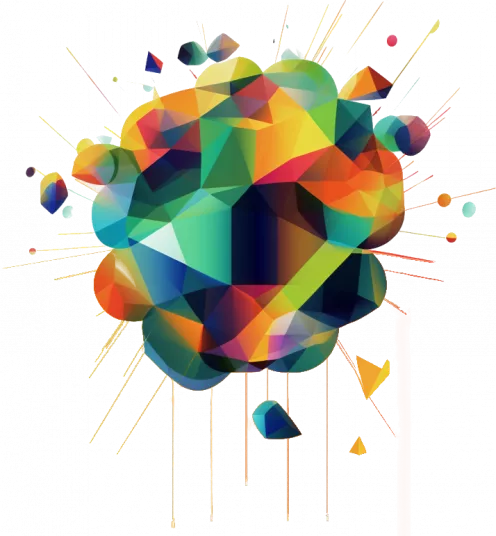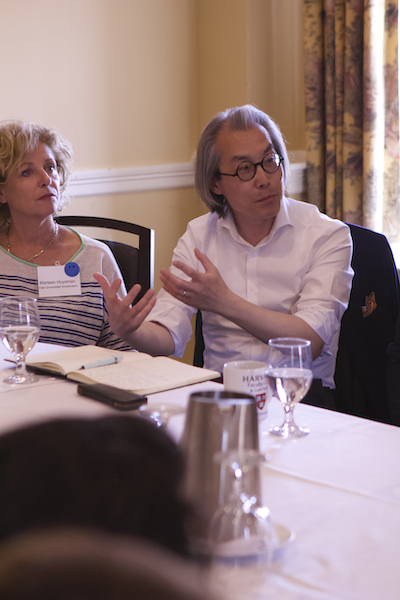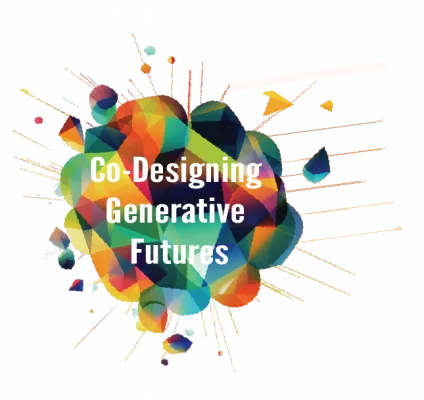
Co-Designing Generative Futures: A Global Conversation About AI
As generative AI technologies have advanced, so too has their potential to transform how people worldwide create, think, work, learn, solve problems, and govern. Given these far-reaching implications, leveraging generative AI to empower communities, advance equity, and mitigate harm will take intention and strategic study.
On May 17-19, 2023, in collaboration with the NCIS at BI Norwegian Business School, ITS Rio, TUM, and the Global Network of Internet & Society Centers, the Berkman Klein Center for Internet & Society at Harvard University hosted Co-Designing Generative Futures: A Global Conversation about AI.
 Designed as an interactive and participatory forum for open knowledge exchange and mutual learning, this workshop brought together ninety-three decision-makers, experts, stakeholders, and students from diverse fields and disciplines and from six continents to address the opportunities and challenges of generative AI — both field-specific and cross-sectional, short-term and long-term, local and global. Additionally, the workshop served as an opportunity for participants to scope and identify mechanisms for collaboration, research, informal coordination, and the development of collective capacity.
Designed as an interactive and participatory forum for open knowledge exchange and mutual learning, this workshop brought together ninety-three decision-makers, experts, stakeholders, and students from diverse fields and disciplines and from six continents to address the opportunities and challenges of generative AI — both field-specific and cross-sectional, short-term and long-term, local and global. Additionally, the workshop served as an opportunity for participants to scope and identify mechanisms for collaboration, research, informal coordination, and the development of collective capacity.
Essays expanding on discussions that began at the workshop are being published BKC's Medium collection.
Participants: Beatriz Botero Arcila, Amar Ashar, Marta Basystiuk, Christopher T. Bavitz, Lionel Brossi, Ryan Budish, Rumman Chowdhury, Sandra Cortesi, Jack Cushman, Chinmay Deshpande, Joan Donovan, Samson Esayas, Armando Guio Español, Champika Fernando, Christian Fieseler, Jess Fjeld, Nathan Freitas, Toni Gardner, Urs Gasser, Jan Gerlach, Valerie Gomez, Greg Gondwe, Mateus Guzzo, Johanna Hahn, Alexa Hasse, Sue Hendrickson, Sam Hinds, Nien-hê Hsieh, Marleen Huysman, Malavika Jayaram, Amy Johnson, Jonas Kaiser, Anandana Kapur, Mason Kortz, Ashley Lee, Meira Levinson, Andres Lombana-Bermudez, Jenn Louie, Christoph Lutz, Maroussia Lévesque, Damion Mannings, Florian Martin-Bariteau, Kalie Mayberry, Madeline McGee, Maria Isabel Mejia, Sabelo Mhlambi, Martha Minow, Andras Molnar, Petra Molnar, Maria Paula Mujica, Victor Muñoz, Sarah Newman, Yong Jin Park, Christian Perrone, Philip Pfaller, Sameer Hinduja, Leah Plunkett, Maia Ravalli, Thomas Renkert, Nagla Rizk, Juliana Rocha, Rahel Roloff, Jane Rosenzweig, Lindsay Saftler, Bruce Schneier, Wolfgang Schulz, Sarah Schwettmann, Gabriella Seiler, Bill Shribman, Markus Siewert, Carlos Affonso Souza, Fabro Steibel, Elisabeth Sylvan, Becca Tabasky, Trent Tepool, Santiago Uribe, Juliana Castro Varón, María Lucía Villalba, Kerstin Noëlle Vokinger, Sut I Wong, Jing Wu, Yunhao Xiao, Sam Yoon, and Jonathan Zittrain.

